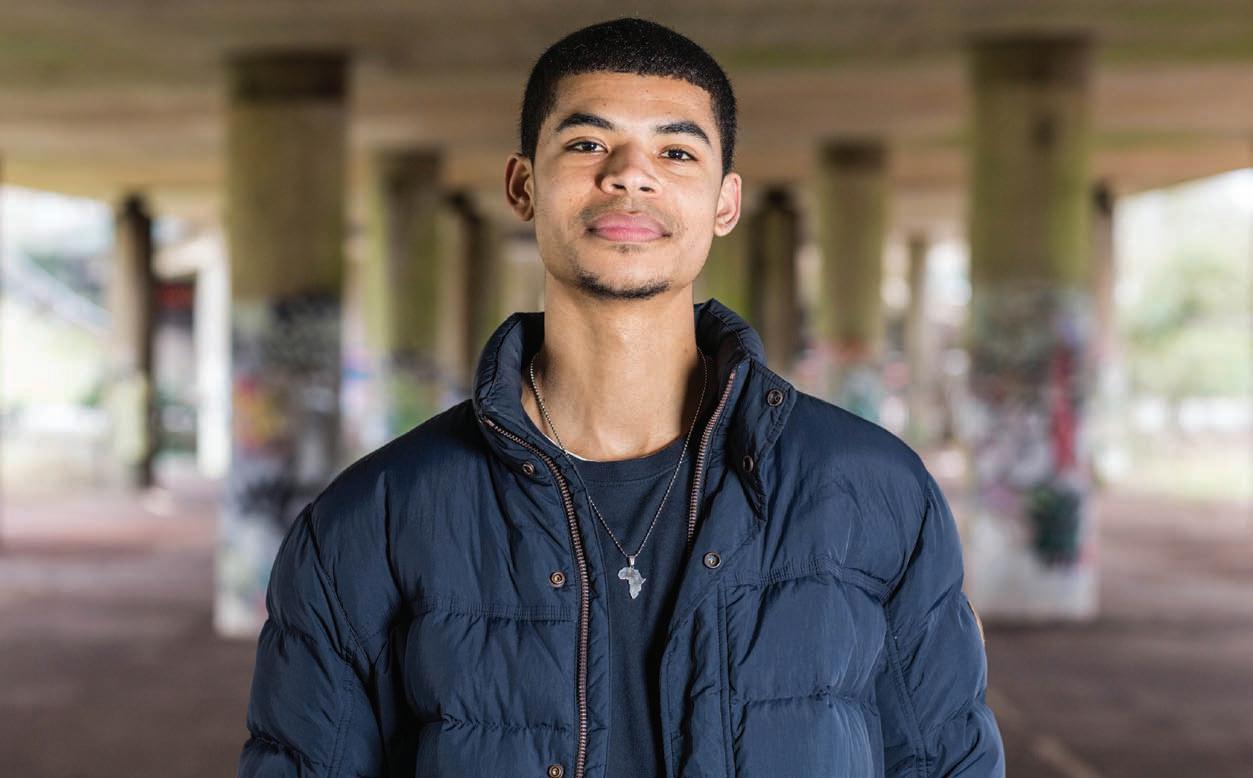Mandem.qxp_Layout 7 20/03/2020 11:07 Page 1
CREATIVE BRISTOL
Be the change
A chat with the founder of Mandem, who managed to launch a multimedia platform all while studying for a master’s at University of Bristol
W
ith a focus on culture, politics and identity, Mandem offers an online space for young men of colour to express themselves through music, film and the written word. We found out more about its purpose and ethos from young local creative Elias Williams, who offered his thoughts on a few contemporary issues and concerns. TBM: Why did you create Mandem? EW: I felt a need to respond to the lack of diversity in the media industries, and a strong desire to engage more young people in thinking critically about race, class and gender. I also saw a great importance in men of colour having a space to express their emotions creatively and constructively, while also tackling the negative stereotyping and media coverage that black and Asian males have been prone to over the years. The response has been overwhelmingly positive! People of all genders, classes and ethnicities engage with our content and come to our events. I hope the platform has encouraged many young people to think more deeply about the society we live in today and, from what I hear, it has, so I’m very grateful. There hasn’t really been much resistance but there have been a few words of caution with regards to the subjects that we tackle – a couple of years ago we held an event at Arnolfini titled ‘Do Mandem Need Feminism?’ There were definitely a few eyes turned at that one! But people were only asking that we approach the subject respectfully, and I believe we did in the end. There was a lot of positive feedback about the event, but we all still have a lot to learn. What do you think of the PressPad initiative set up to help stamp out elitism in journalism and help aspiring journalists into the profession? It sounds like a great initiative. It makes me feel uncomfortable that so many people high up in the media went to Oxford or Cambridge University – or came from very privileged backgrounds. Initiatives like PressPad can hopefully make journalism a more representative industry. 36 THE BRISTOL MAGAZINE
|
APRIL 2020
|
No 190
What are your thoughts on the lack of black students studying history? I find it a little embarrassing to be honest. I don’t blame black students, but it saddens me that so many are put off by the idea of studying history because of either how irrelevant or Eurocentric the subject matter on offer is. I encourage black students to study history at university so that they can have a role in changing the curriculum. Most black students have a choice between slavery or the civil rights movement when it comes to studying ‘black history’ – if more module options were on offer, such as precolonial African history or the role of the Moors in Spain, perhaps more black students would be interested.
I encourage black students to study history at university so that they can have a role in changing the curriculum... Do you think Olivette Otele being made the University of Bristol’s professor of the history of slavery will have an inspiring impact? You’d hope so but it’s a deep-rooted problem that won’t be solved overnight. Many people in this country still get deeply offended if you mention anything negative about the British Empire or Winston Churchill. History is profoundly complicated and it’s not about labelling empires or figures as good or bad – it’s about gaining a better understanding of the whole picture. Otele’s work is crucial for that very reason. She provides us with a much wider understanding of black history, so I’m sure her presence at Bristol and her successful career will inspire many young black students to pursue history.













